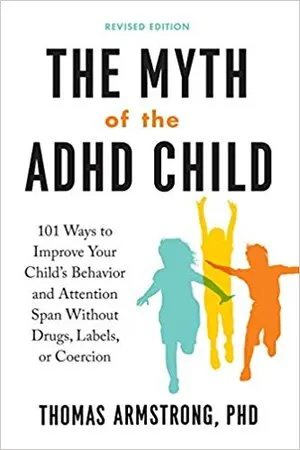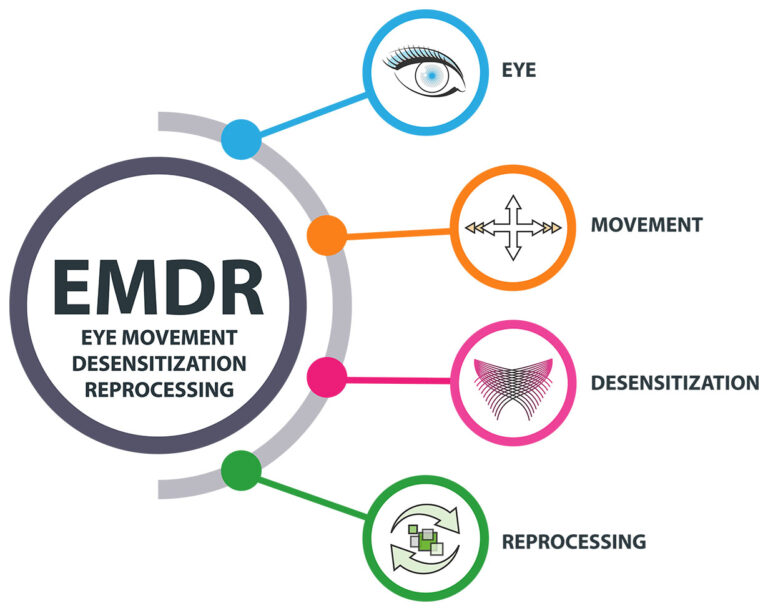Couples and Family Therapy: Strengthening Relationships Through Connection
Relationships are the cornerstone of our lives, providing support, love, and a sense of belonging. However, even the strongest relationships can face challenges—whether due to communication breakdowns, unresolved conflicts, or life transitions. Couples and family therapy offers a safe, structured space to address these issues, improve communication, and foster deeper emotional connections. With the guidance of a trained therapist, couples and families can navigate difficulties, heal past wounds, and create healthier, more fulfilling relationships.
What Is Couples and Family Therapy?
Couples and family therapy is a form of psychotherapy that focuses on improving relationship dynamics between partners or family members. Unlike individual therapy, which centers on personal growth and mental health, couples and family therapy explores how relational patterns, communication styles, and emotional connections impact the well-being of the group as a whole.
This type of therapy is grounded in the belief that relationship issues are best understood within the context of the system—whether that’s a romantic partnership, parent-child relationship, or extended family dynamic.
Who Can Benefit from Couples and Family Therapy?
Couples and family therapy is not just for relationships in crisis. It’s beneficial for anyone seeking to strengthen their connections, improve communication, or address unresolved conflicts. Therapy can help:
- Couples experiencing communication issues, frequent arguments, or emotional disconnection
- Families dealing with parenting challenges, blended family dynamics, or adolescent behavioral concerns
- Partners recovering from infidelity, betrayal, or breaches of trust
- Families coping with grief, loss, or major life transitions
- Couples navigating premarital counseling or preparing for long-term commitments
- Families impacted by mental health issues, addiction, or trauma
- Individuals seeking to improve conflict resolution and boundary-setting skills within their relationships
Whether you’re looking to repair a strained relationship or strengthen an already healthy one, therapy provides the tools and support needed for lasting growth.
Common Issues Addressed in Couples and Family Therapy
Couples and family therapy can help address a wide range of concerns, including:
- Communication Breakdowns: Difficulty expressing needs, feeling unheard, or escalating conflicts without resolution.
- Conflict and Resentment: Recurring arguments, unresolved tensions, or emotional withdrawal.
- Trust Issues: Healing after infidelity, dishonesty, or breaches of emotional safety.
- Emotional Intimacy: Rebuilding closeness, vulnerability, and connection after periods of distance.
- Parenting Challenges: Co-parenting struggles, discipline disagreements, or navigating developmental changes.
- Blended Family Dynamics: Managing relationships in stepfamilies, including loyalty conflicts or role confusion.
- Life Transitions: Adjusting to major changes like marriage, divorce, relocation, or caregiving roles.
- Mental Health and Addiction: Supporting family members with anxiety, depression, addiction, or other mental health concerns.
How Does Couples and Family Therapy Work?
Couples and family therapy is a collaborative process guided by a trained therapist. The therapist’s role is not to take sides or assign blame but to create a safe space where everyone feels heard, respected, and supported.
While the structure may vary depending on the therapist’s approach and the issues being addressed, therapy often includes:
1. Assessment and Goal Setting
The first few sessions focus on understanding the relationship dynamics, identifying strengths and challenges, and clarifying goals. The therapist may meet with individuals separately or together to gather different perspectives.
2. Exploring Relationship Patterns
Therapy helps uncover patterns that contribute to conflict or disconnection. This may involve examining communication styles, emotional triggers, family history, and unresolved issues that impact the relationship.
3. Skill-Building and Conflict Resolution
Couples and families learn practical skills to improve communication, manage conflict constructively, and deepen emotional intimacy. Techniques may include active listening, empathy-building exercises, and problem-solving strategies.
4. Emotional Processing and Healing
Therapy provides a safe space to express vulnerable emotions, repair emotional wounds, and rebuild trust. This process often involves addressing past hurts, unmet needs, and underlying fears that contribute to relational distress.
5. Integration and Maintenance
As therapy progresses, couples and families practice new skills outside of sessions and work toward sustaining healthy relationship patterns. The goal is to create lasting change that continues long after therapy has ended.
Therapeutic Approaches in Couples and Family Therapy
Therapists use various evidence-based approaches to support relationship growth. Some common modalities include:
- Emotionally Focused Therapy (EFT): Focuses on identifying and transforming negative interaction patterns while fostering secure emotional bonds.
- Gottman Method Couples Therapy: Based on decades of research, this approach teaches communication skills, conflict management strategies, and ways to build intimacy and trust.
- Cognitive-Behavioral Therapy (CBT) for Couples: Helps identify and change unhelpful thought patterns and behaviors that contribute to relationship distress.
- Family Systems Therapy: Explores how family dynamics, roles, and communication patterns impact individual and relational well-being.
- Solution-Focused Brief Therapy (SFBT): Emphasizes strengths, resources, and solutions rather than focusing solely on problems.
- Attachment-Based Therapy: Examines how early attachment experiences influence current relationship patterns and emotional needs.
Benefits of Couples and Family Therapy
Couples and family therapy offers numerous benefits that extend beyond resolving conflicts:
- Improved Communication: Learn to express thoughts and feelings clearly while actively listening to others.
- Deeper Emotional Connection: Strengthen bonds through vulnerability, empathy, and mutual understanding.
- Conflict Resolution Skills: Manage disagreements constructively without escalating into harmful patterns.
- Rebuilding Trust: Heal from betrayals or breaches of trust with guided support and accountability.
- Stronger Family Dynamics: Foster healthier relationships between parents and children, siblings, or extended family members.
- Personal Growth: Gain self-awareness, emotional regulation skills, and insight into how personal experiences influence relationships.
When to Seek Couples or Family Therapy
Many people wait until a relationship reaches a breaking point before seeking therapy, but you don’t have to be in crisis to benefit. Consider therapy if you’re experiencing:
- Frequent arguments or unresolved conflicts
- Emotional distance or loss of intimacy
- Breakdowns in communication or feeling unheard
- Trust issues related to infidelity, dishonesty, or betrayal
- Parenting challenges or disagreements about child-rearing
- Blended family struggles or difficulty adjusting to new family dynamics
- Stress from major life transitions, such as moving, career changes, or health issues
- Concerns related to mental health, addiction, or trauma affecting the relationship
Seeking therapy early can prevent issues from escalating and create a foundation for healthier, more resilient relationships.
What to Expect in Couples and Family Therapy Sessions
If you’re new to therapy, it’s normal to feel unsure about what to expect. Here’s a general outline of what couples and family therapy sessions may involve:
- Safe, Neutral Space: The therapist creates an environment where all voices are heard without judgment or bias.
- Open Dialogue: Sessions encourage honest, respectful communication about thoughts, feelings, and concerns.
- Guided Discussions: The therapist helps identify patterns, clarify misunderstandings, and explore underlying emotions.
- Practical Tools: Learn strategies for conflict resolution, emotional regulation, and strengthening connection.
- Homework Assignments: Some therapists provide exercises to practice outside of sessions, reinforcing skills learned in therapy.
How to Get the Most Out of Couples and Family Therapy
To maximize the benefits of therapy:
- Be Open and Honest: Share your thoughts and feelings authentically, even if it feels uncomfortable.
- Stay Curious: Approach the process with a willingness to learn about yourself and your loved ones.
- Practice Active Listening: Focus on understanding your partner or family member’s perspective without interrupting or becoming defensive.
- Apply Skills Outside of Therapy: Practice new communication techniques, conflict resolution strategies, and emotional regulation tools in daily life.
- Commit to the Process: Change takes time. Stay patient, consistent, and engaged in the therapeutic journey.
Couples and Family Therapy at Restorative Counseling Services
At Restorative Counseling Services, we offer couples and family therapy designed to support healthy relationships, emotional growth, and lasting connection. Our experienced therapists create a compassionate, non-judgmental environment where couples and families can explore challenges, heal from past hurts, and build stronger, more fulfilling relationships. Whether you’re navigating conflict, rebuilding trust, or seeking to deepen your connection, we’re here to support your journey.
Conclusion
Relationships are dynamic, ever-evolving, and sometimes challenging. Couples and family therapy provides a roadmap for navigating these challenges with understanding, empathy, and effective communication. Whether you’re facing conflict, seeking to strengthen your bond, or healing from past wounds, therapy offers a path to deeper connection and emotional well-being. At Restorative Counseling Services, we’re honored to walk alongside you on your journey to healthier, more meaningful relationships.




